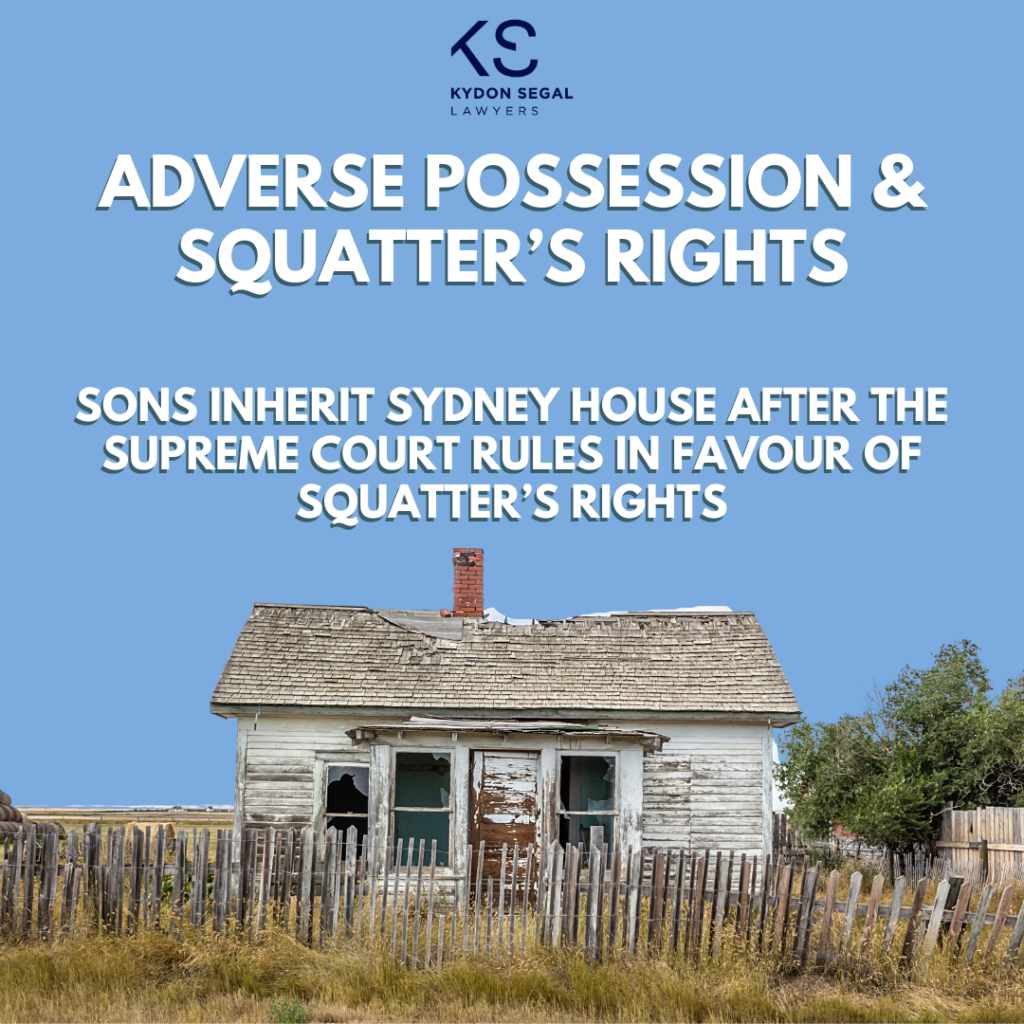
The Supreme Court of NSW has ruled that two sons will inherit a Sydney house and a vacant block of land near Nowra after their mother assumed control over the land under squatters’ rights.
The woman first assumed control over the properties after the original owner died in or around 1969. There was no will and no one attempted to claim the property as part of the original owner’s estate. The woman, a mother of two, paid rates and rented out the Sydney property however she did not make a claim under adverse possession to become the legal owner of the land before she died.
Adverse possession, which is commonly known as squatters’ rights, may be claimed by a person if they can satisfy the requirements under the Real Property Act. In NSW, requirements are that the property must be possessed by the same owner for more than 12 years and the true owner of the property must not give permission to the possessor. Additionally, the person must act openly in their possession of the property and it must not be kept a secret.
In 1988, one of the woman’s sons moved into the Sydney property with his wife however the mother was recorded as the person responsible for the property. The couple also looked after the block of land near Nowra.
In 2016, the couple applied to become the registered owners of the land under and successfully became the true owners of the land. After the mother died, the couple sold the land however, a dispute arose about whether the couple could sell the land without sharing the sale proceeds with the woman’s other son. The decision would be determined on whether the property was part of the mother’s estate.
The Court held that the woman intended to maintain possession of the property and although she allowed her son to occupy the properties, she did not intend to give them to him as a gift. While she did not apply to become the legal owner of the properties, the court held the woman would become the registered proprietor of the properties under adverse possession and her interest in the property would pass onto the executor of her estate.
Adverse possession highlights the problems that could arise for property owners if their land is unoccupied or abandoned. Squatting has become increasingly popular and although adverse possession claims are hard to prove, this will not stop potential squatters from making a claim to become the legal owner of a property.